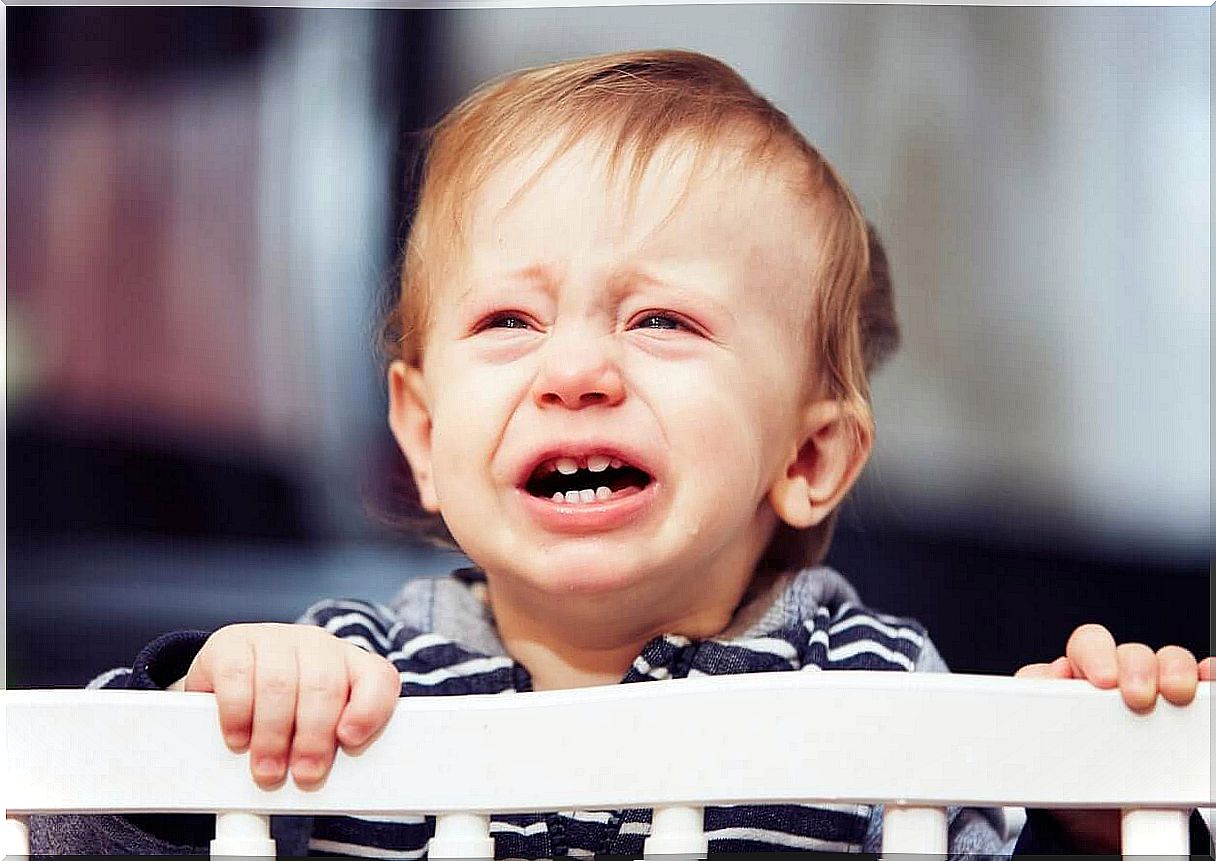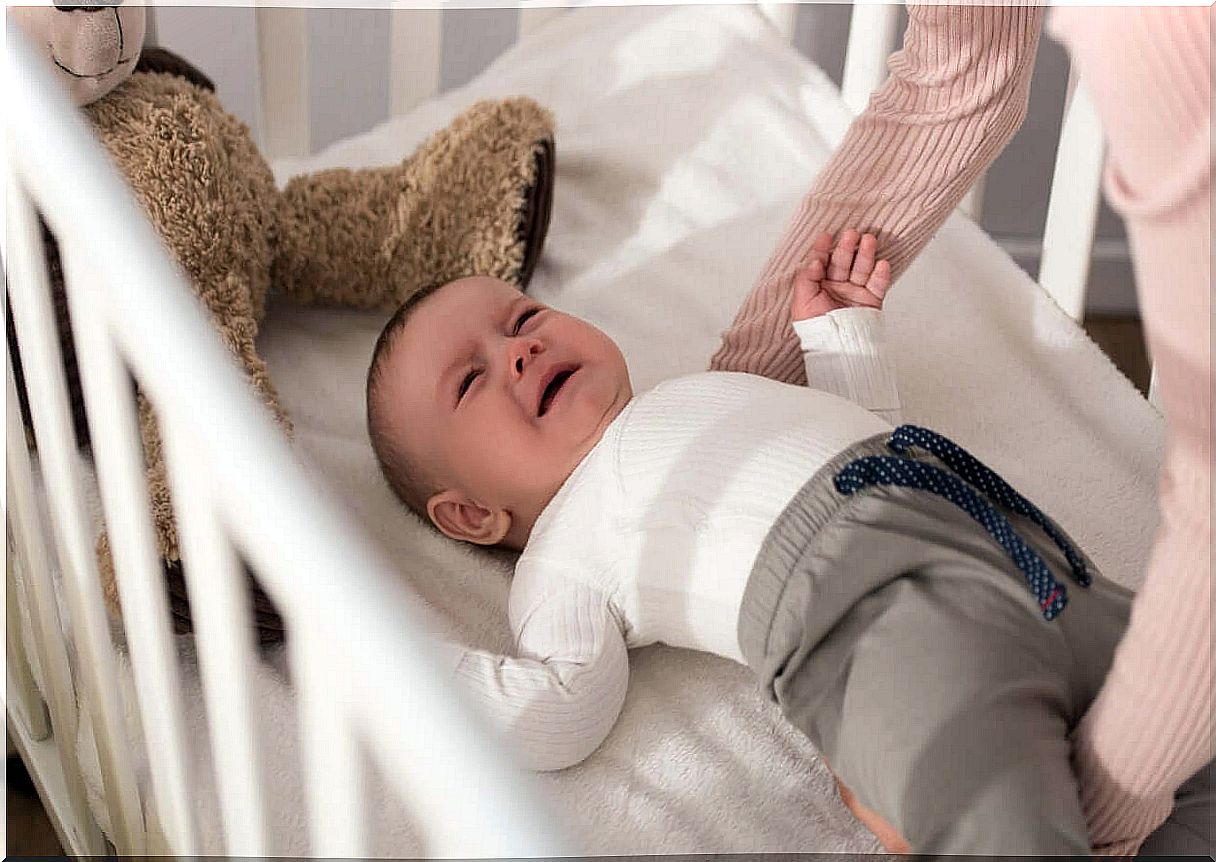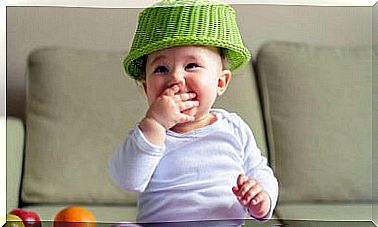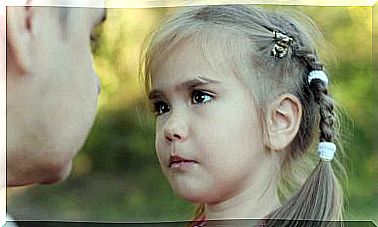My Child Is Afraid Of His Crib

It’s time to sleep and in some homes a real battle breaks out. You might identify with this and suspect that your child is afraid of their crib, right? If so, keep reading and find out why this is happening.
Babies and fear
We must understand that fear is a primary emotion, which warns us of danger (real or imagined) and allows us to take action to make ourselves safe.
Now, if we transfer this to a child’s life, we must also consider the existence of evolutionary or developmental fears . That is, those who appear at different ages and are later replaced by others. With this in mind, one can expect that a 12 month old baby will not have the same fears as a 3 year old.
During the first years of life , the crib represents an event that causes a lot of fear and anxiety in infants. Especially the moment they go to bed. For adults, it may be of little importance, but for young people it symbolizes the disappearance of parents and thus loneliness.
For this reason, instead of ignoring this feeling, it is important that you follow your child and help them gain confidence gradually. In this way, you will also be able to restore peace and harmony in your home.

What should I do if my child seems to be afraid of their crib?
There are some recommendations to help children not be afraid of their crib. However , it is always best to apply appropriate measures to the child we have at home. That is, we must respect our children and not try to fit any idealized model at any cost.
Here are some tips to help you resolve this fear:
Do not make them cry!
Many repeat this phrase as a mantra: “Let him cry and they will get used to it” . However, there are things you should know before doing so.
Although it is true that after a while the child gets used to it, the message that their brain receives is that there is no one who can take care of them, and therefore it makes no sense to cry. In addition, this learning does not take place in a healthy way. It is rather full of anxiety and discomfort.
Therefore, not only does the relationship with their caregiver deteriorate, but the feeling of abandonment is reinforced, along with the fear of their crib.
Be patient and follow them in the process
In case you decide to follow any recommendation to help them sleep, remember to take steps gradually and accompany your child at all times. Do not rush, forcing your child does not always lead to better results.
For example, you can try leaving them in the crib for a few minutes during the day so that they start to get to know and get used to it. In the meantime, stay by their side so that they feel safe and secure. A little at a time, try to leave it for a long time and try to do it at night as well.
In turn, try to get your child to associate the crib with something positive, such as their favorite doll, blanket, or other popular object.
Check your child’s sleeping habits
There are some methods that promote good sleep and are called sleep hygiene. Among them, adapt the physical environment in which the crib is located (lighting, temperature and room colors) or establish routines and schedules.
Identify the child’s sleep phases

Many times your baby falls asleep in your arms and you immediately try to place them in their crib. Then they wake up and it all starts again. But who would not wake up? Your arms and human warmth are so much better than a crib!
This happens because the first 20 minutes after falling asleep coincide with the light sleep phase. Therefore, the child wakes up at the slightest change in the environment.
Therefore, it is better to wait a little longer before trying to leave them in the crib so that they enter the deep sleep phase.
Listen to the conversation when I wake up
Has it ever occurred to you that you wake up disoriented and feel upset because you do not know where you are? The same thing happens to your baby when he falls asleep in your arms and wakes up in his crib. Therefore, once you have managed to leave it there, return every time they call to reinforce the idea that you have not abandoned them.
Teach them to fall asleep
To get a baby to fall asleep, it is also good to use certain strategies, such as singing softly, caressing them or rocking them.
Although many people think this is counterproductive, the truth is that through these habits you teach them options to relax, which they can then repeat on their own.
Do not be surprised if you hear them sing softly or whisper to themselves to calm down.
There is no recipe, and no magic formula
In parenting, there is always good advice and good intentions. All the people in your environment who have already experienced this will try to share what worked for them with other children. This can sometimes be a source of relief and support, but it can also create feelings of guilt.
In addition, there are certain methods that we can not perform for various personal reasons. Therefore, it is important to build your own parenting styles, without believing that there are universal and infallible recipes when it comes to raising children.
The most important thing when raising a child is to be guided by empathy, respect and understanding. To know what is best for each child, you must know each other well enough, and this requires time and great sensitivity on the part of the parents.
Finally; look for quality information on the development of infants to make informed decisions about the subject.









